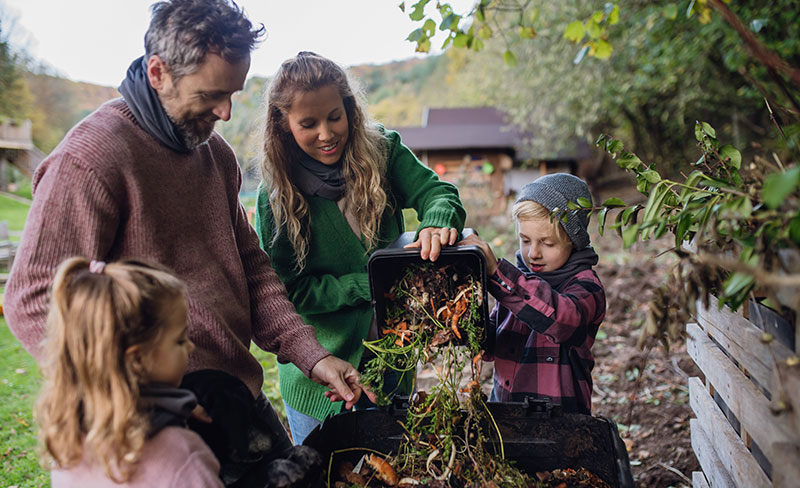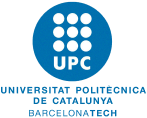News
The Secret of Composting: Transform Organic Waste into Green Gold
A Useful Yet Smelly Process

Composting, the activity that transforms organic waste into natural fertilizer, is experiencing a resurgence due to growing environmental awareness. But what is behind this process that turns kitchen scraps and garden waste into nutrient-rich soil?
It all begins with the collection of suitable organic materials, such as food scraps like fruits, vegetables, eggshells, and coffee grounds, as well as leaves, grass clippings, and small branches from the garden. It’s important to avoid materials like meat, dairy, and oils, as they can attract pests and cause unpleasant odors. Once the materials are collected, a compost pile is created in an appropriate space. The key is to ensure a good mix of “green” nitrogen-rich materials (fresh food scraps) and “brown” carbon-rich materials (dried leaves, branches). This combination is essential to provide the nutrients needed for the microorganisms that decompose the organic matter.
Moisture is crucial for the composting process. The pile should maintain a moisture level similar to a wrung-out sponge. If it’s too dry, decomposition slows down; if it’s too wet, unpleasant odors can develop. This is where rain plays an important role, helping to naturally maintain the optimal moisture balance. Additionally, composting is an aerobic process, meaning that microorganisms need oxygen to do their work. Regularly turning the compost pile with a fork or special aerator helps maintain good airflow, preventing the pile from becoming anaerobic and emitting bad odors.
During the decomposition process, the compost pile generates heat. An internal temperature of 55-65 degrees Celsius is ideal, as it helps break down organic matter quickly and kills pathogens and weed seeds. Regularly measuring the temperature with a special compost thermometer is a common practice to ensure everything is progressing correctly. After several months of active maintenance, the compost pile begins to mature. At this point, the organic materials have significantly decomposed, and the pile should have a uniform texture and dark color, similar to forest soil.
Finally, the mature compost can be sifted to remove larger particles that haven’t fully decomposed. This nutrient-rich compost is ready to be applied to gardens, vegetable patches, and potted plants, improving soil quality, increasing water retention, and promoting healthy plant growth.
Composting not only reduces the amount of waste sent to landfills but also produces a valuable resource for our natural environment. As more people and communities adopt this practice, we are taking important steps toward a greener and more sustainable future.
So next time you think about discarding a rotten apple or dried leaves, remember that you could be contributing to creating green gold for your garden.
Composting offers numerous benefits both on a small and large scale.
In home gardens, composting becomes a valuable tool for improving soil quality. Adding compost provides a rich source of essential nutrients like nitrogen, phosphorus, and potassium, which are necessary for healthy plant growth. This results in more vigorous and productive plants. Additionally, compost increases the soil’s ability to retain water, reducing the need for frequent watering, which is especially useful in areas with drought or water restrictions. Another key advantage of small-scale composting is waste reduction. Converting organic waste into compost decreases the amount of waste sent to landfills, thus helping to minimize environmental impact.
Economically, producing your own compost also saves money on commercial fertilizers and soil amendments. Furthermore, composting has significant educational value, teaching both children and adults about natural cycles and the importance of sustainability. This practice promotes environmental awareness and ecological responsibility.
On a larger scale, in agricultural fields, the benefits of composting are equally significant. The application of compost over large agricultural areas greatly improves soil health, fostering a solid structure and increasing microbial biodiversity. This, in turn, boosts long-term soil fertility, leading to healthier and more abundant crops. Moreover, compost helps control soil erosion by maintaining soil cohesion, reducing damage caused by water and wind, and thus protecting farmlands and maintaining their productivity.
Another crucial aspect of large-scale composting is the reduction of reliance on chemical products. By using compost, the need for chemical fertilizers and pesticides is reduced, promoting more sustainable and less polluting agriculture. Additionally, composting contributes to carbon sequestration in the soil, helping to mitigate climate change. Lastly, agricultural waste management is improved through composting, as residues such as straw and other crop remains can be composted and returned to the fields, closing the nutrient cycle and reducing waste.
In summary, composting is a powerful tool for improving soil health and promoting environmental sustainability in both small gardens and large agricultural fields. With its multiple benefits, from waste reduction to soil enrichment, this is a practice worth adopting and promoting at all levels. As more people and communities embrace this practice, we are making important strides toward a greener and more sustainable future.
All these benefits of composting are also the driving reasons for responsible management of organic waste. It’s important to make the most of everything we use, as natural resources are limited, and we must find other methods to benefit both the planet and ourselves. So, the next time you think about discarding a rotten apple or dried leaves, remember that you could be contributing to creating green gold and doing your part to improve the quality of life.









